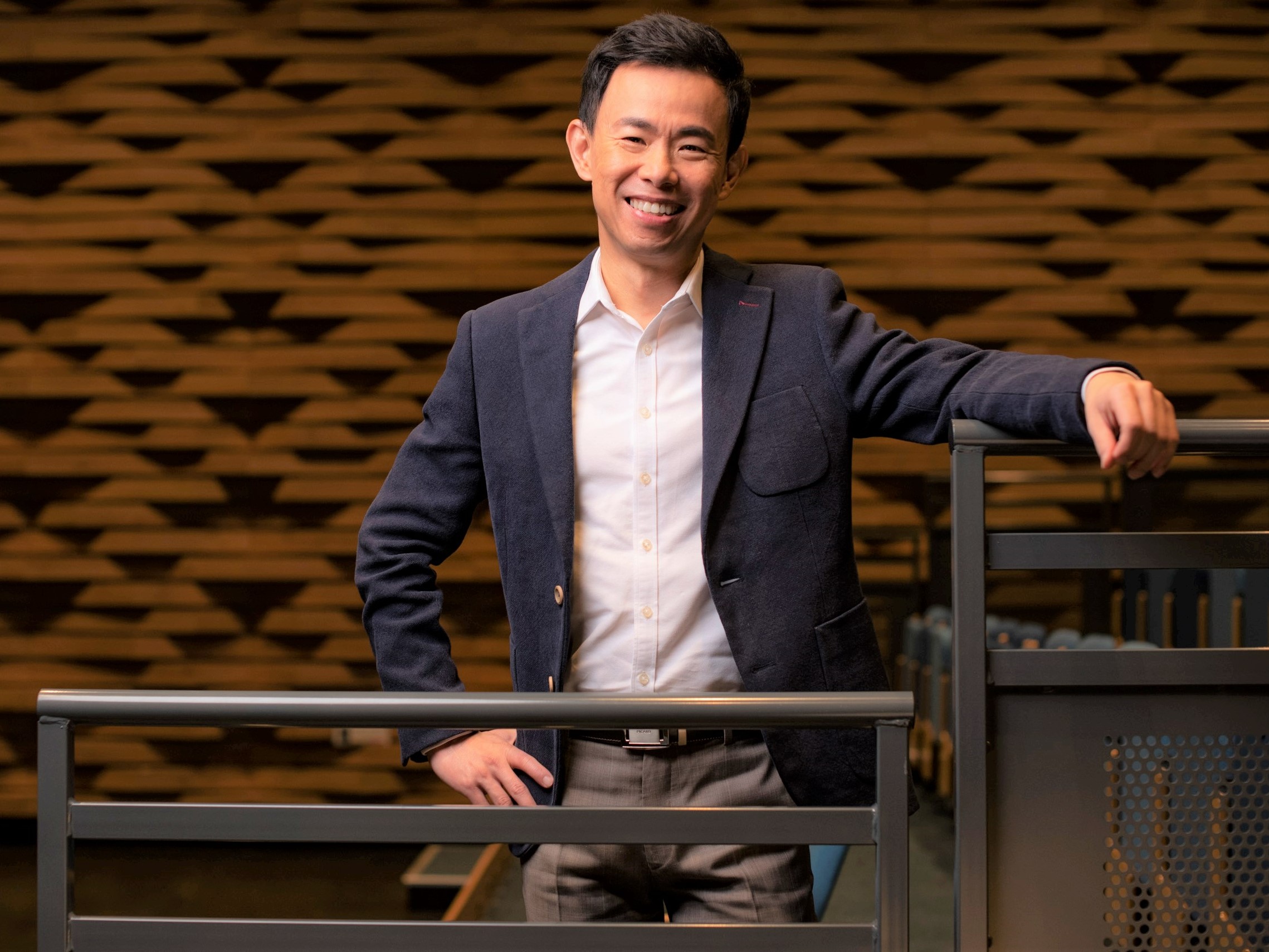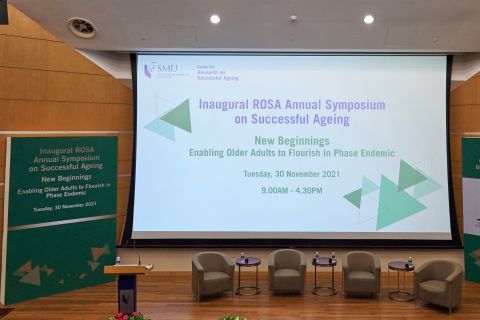
By Alistair Jones
SMU Office of Research & Tech Transfer – A recent US survey found that more than 40 percent of Americans still don't believe President Joe Biden legitimately won the 2020 election, despite compelling evidence to the contrary. What is it about humans and intransigent mindsets?
“It’s difficult to change people’s minds because we are motivated to hold on tight to existing beliefs – world views – which help to keep us anchored in the world,” says Mark Chong, Singapore Management University (SMU) Associate Professor of Communication Management.
Changing mindsets is integral to a new project by Professor Chong and research partner Angela Leung, SMU Associate Professor of Psychology. They recently received an MOE Academic Research Funding Tier 2 grant to conduct a study that aims to identify the most effective messages to foster public acceptance and adoption of alternative proteins as a food source.
Alternative proteins – derived from plants, insects, fungi or cell cultures – could offer a more reliable and sustainable source of protein to Singaporeans, compared with conventional animal-based products, and be a key to future food security for an island state that has limited land for agriculture and imports more than 90 percent of its food needs from more than 170 countries.
Singapore is a leading proponent of alternative proteins. In December 2020, it became the first country in the world to approve the sale of cell-based meat, such as lab-grown chicken. There is government support for industry initiatives, entrepreneurs, even a university degree in alternative proteins. But has the eating public taken to the idea?
“Until now, there hasn’t been any peer-reviewed study on consumer acceptance of alternative proteins in Singapore. Our study aims to fill a gap in the literature on the topic,” says Professor Chong.
Social norms
Attempting to affect a cultural shift across a whole population is an ambitious task, especially with something as personal as what we choose to eat.
“It’s particularly challenging to shift mindsets around food because food consumption is deeply intertwined with social norms, which change relatively slowly,” says Professor Chong.
“And social norms powerfully influence behaviour because adherence (or non-adherence) to norms is associated with judgments.”
Health-food restaurants commonly serve plant-based 'sausages' and 'hamburgers' that look and taste similar to familiar meat-based counterparts. Is concentrating on the end product, rather than the ingredients, a way of gaining wider acceptance of alternative proteins?
“Yes. The research shows that the ultimate form in which the food takes has a huge impact on its acceptance by consumers,” Professor Chong says.
“For example, the way the food is presented – either as a product in isolation or as a part of a meal – makes a difference. Many previous studies on the acceptance of insect-based foods in Western countries show that consumers prefer processed insect-based products with familiar carriers, such as protein bars and crisps, over unprocessed whole insects.”
Positive impressions
Disguising alternative protein ingredients can seem apologetic. Would it be better to champion their inclusion – framing them as a positive highlight of an exciting food future?
“The way a novel food product is framed has a significant impact on its acceptance,” says Professor Chong.
“Framing the consumption of alternative proteins as part of an exciting food future may work better in some cultures than others. We recently completed a study and found that having the eating motivation of impression management was associated with a higher acceptance of lab-grown meat in Singapore.
“This suggests that highlighting the positive impressions of consuming lab-grown meat – being the trailblazer and contributing to the development of an exciting food culture in Singapore – may foster greater acceptance of lab-grown meat here.”
People utilise heuristics, or mental shortcuts, when making decisions in their daily lives – such as, finding the idea of eating insects to be revolting, or dismissing lab-grown food as unnatural.
“The perception of unnaturalness is indeed one of the biggest barriers to consumer acceptance of alternative proteins. It appears to be an even more basic obstacle to acceptance than other barriers such as perceived safety or ethical concerns. And perceived unnaturalness is linked to disgust,” Professor Chong says.
“Research on how to overcome perceived unnaturalness is still in its very early stages. Nonetheless, a recent study indicates that acceptance strategies that target analytic processing – that is, using just information – may have limited success.
“The same study suggests that affective strategies – used either in isolation or together with analytic strategies – may yield greater success, as perceived unnaturalness is not formed through a purely analytic reasoning process.”
Message frames
The researchers are generating message frames to test and gauge Singaporeans' receptivity to alternative proteins, such as perceived health benefits, or ethical and environmental concerns.
The project then aims to discover how the channels of social media influencers could be deployed to successfully transmit these messages. Around 85 percent of Singaporeans are active on social media, according to estimates.
The researchers are identifying types of social media influencers in the food and drinks category, which will then be imitated with fabricated sites to transmit and test the message frames on a representative sample of Singaporeans as an online survey.
But which influencers to imitate? The most popular, with the largest audiences, tend to be fashionable in spruiking the latest products and events – hedonistic rather than persuasive.
“Our earlier study (currently under peer review) focuses on celebrity and expert influencers,” Professor Chong says. He adds that passionate micro-influencers, with a smaller engaged audience, would seem better suited to transmitting messages about alternative proteins.
“By definition, micro-influencers have greater authenticity and expertise in their chosen area, and both authenticity and expertise have been shown to be positively related to trust. It is perhaps no surprise then that micro-influencers have up to 60 percent increased engagement rates than macro-influencers,” he says.
Singapore has a distinctive food culture and the researchers urge caution in expecting the insights derived from the project to directly apply to other countries.
But if the project can assist in facilitating a positive cultural change in attitudes and behavioural intention towards alternative proteins in Singapore, by identifying the most effective messages and a winning way to transmit them, that will be an achievement in itself.
Back to Research@SMU Feb 2022 Issue
See More News
Want to see more of SMU Research?
Sign up for Research@SMU e-newslettter to know more about our research and research-related events!
If you would like to remove yourself from all our mailing list, please visit https://eservices.smu.edu.sg/internet/DNC/Default.aspx

